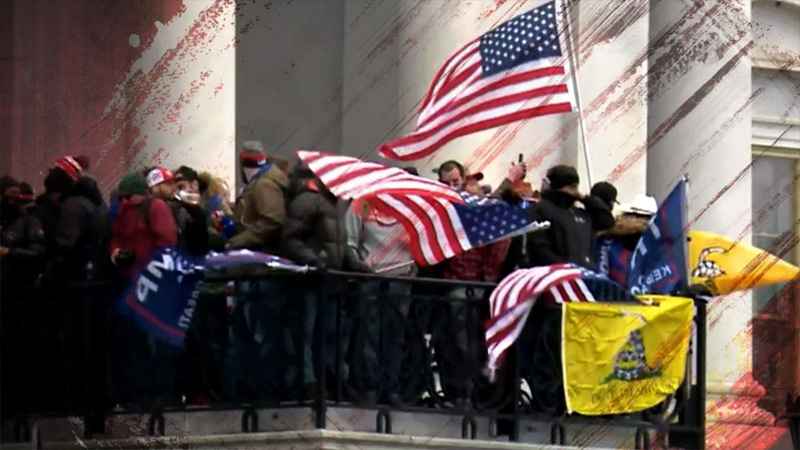Threat from Within: Current and former federal officials in Minnesota see unprecedented surge in extremism
[anvplayer video=”5005817″ station=”998122″]
The extreme rhetoric that preceded the attack on the nation’s Capitol last month — and led to this week’s impeachment trial of the former president — will continue to threaten the nation’s security in the coming months and years, according to federal officials.
Just weeks after the attack that left five people dead, including a police officer, the Department of Homeland Security issued a rare alert about future attacks from radical groups that may turn their First Amendment-protected thoughts into criminal acts.
Federal officials say extremists are taking advantage of the civil unrest that has occurred throughout the country in the past year, including in Minnesota following the death of George Floyd.
“I am like every American out there that sees this type of action and wonder ‘what in the world are people thinking?’” said Erica MacDonald, U.S. Attorney for the District of Minnesota.
MacDonald’s office has already charged three members of the so-called Boogaloo Bois, the anti-government and heavily armed extremist group accused of exploiting the riots in the Twin Cities last summer.

2 self-proclaimed ‘Boogaloo Bois’ charged with attempting to support Hamas
“We had folks in Minnesota who rightfully wanted their voice to be heard on issues of social justice and systemic racism. But we had individuals come in and take advantage of that situation,” MacDonald said.
One of the men facing federal charges is Michael Solomon of New Brighton. He carried around an assault rifle and ammo during the riots and discussed plans of targeting police officers, according to court records.
MacDonald said the attack on the Capitol put the focus on domestic extremism and, in return, is helping lead to more tips to law enforcement, possibly preventing other attacks.
In the days and weeks following the insurrection, her office charged two people in Minnesota for threatening police, state lawmakers and even a sitting member of Congress.
Last month, DHS alerted the public that the current rhetoric could inspire extremists to “continue to mobilize to incite or commit violence” in the months to come.
US terrorism alert warns of politically motivated violence
Last week, the head of the FBI in Minnesota warned that threats from extremists groups and white supremacists will continue to be a serious issue.
Kyle Loven, a former special agent, told 5 INVESTIGATES that the attack on the capitol was a “definite eye-opener for the country.”
“It’s at a higher pitch than I have seen… during my career with the FBI,” said Loven, who spent more than 20 years with the FBI, mostly in Minnesota.
“You have a number of people who are disaffected, they believe the election was somehow stolen, the election was somehow illegitimate,” Loven explained. “I think that has propelled some of these anti-government types to really ratchet up the rhetoric.”
The rhetoric has become so concerning that local law enforcement have been forced to take what in the past would have seemed like extreme precautions.
With the riots in D.C. appearing to energize the crowd gathered outside the Governor’s mansion in St. Paul on Jan. 6, the Minnesota State Patrol rushed in and escorted Gov. Tim Walz’s teenage son from the residence.
Walz said it was the first time the State Patrol had to take such action.
It came months after federal investigators foiled a right-wing militia group’s plot to kidnap the governor of Michigan.
Federal officials are concerned the current environment may continue to help fringe groups gain traction and build an even bigger following here in Minnesota and around the country.
Kevin Lowry, former federal chief probation officer for the U.S. District of Minnesota, thinks it may be too late.
“In the last year, from confidential sources and formers that I have talked to, they’ve talked about the galvanizing of the population and they have many different levels of members or people actively involved in their groups. So I think it has spread,” Lowry said.
Lowry studied extremists for years because it was his job to deradicalize them, after spending more than 15 years with the court in Minnesota.
He designed a first of its kind program in the country to reintegrate these types of offenders back into society.
“We’ve got a big job, a big task ahead of us because we don’t want what happened in this past year to become our new normal,” he said.